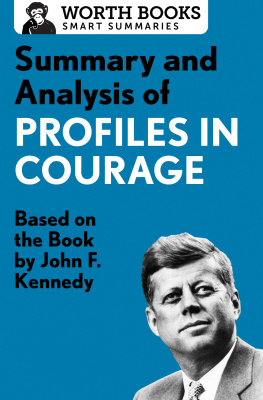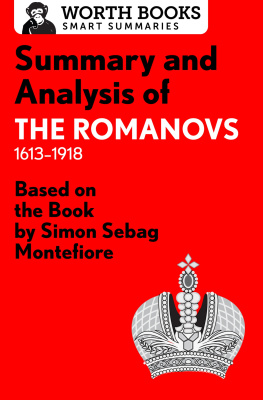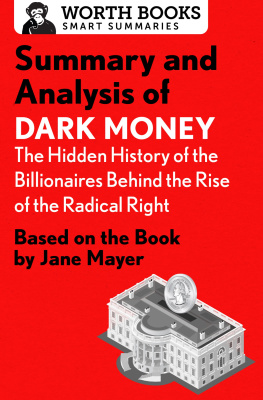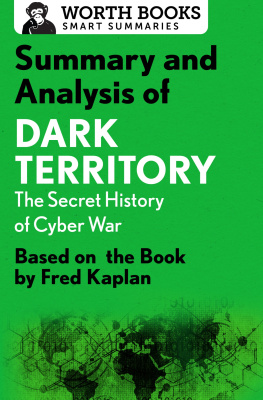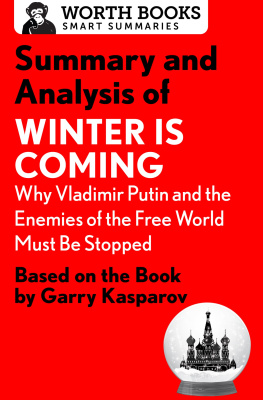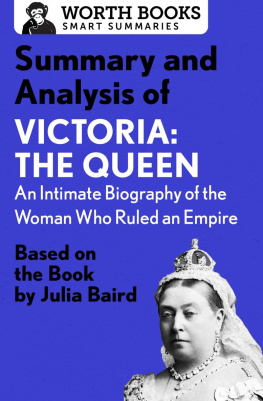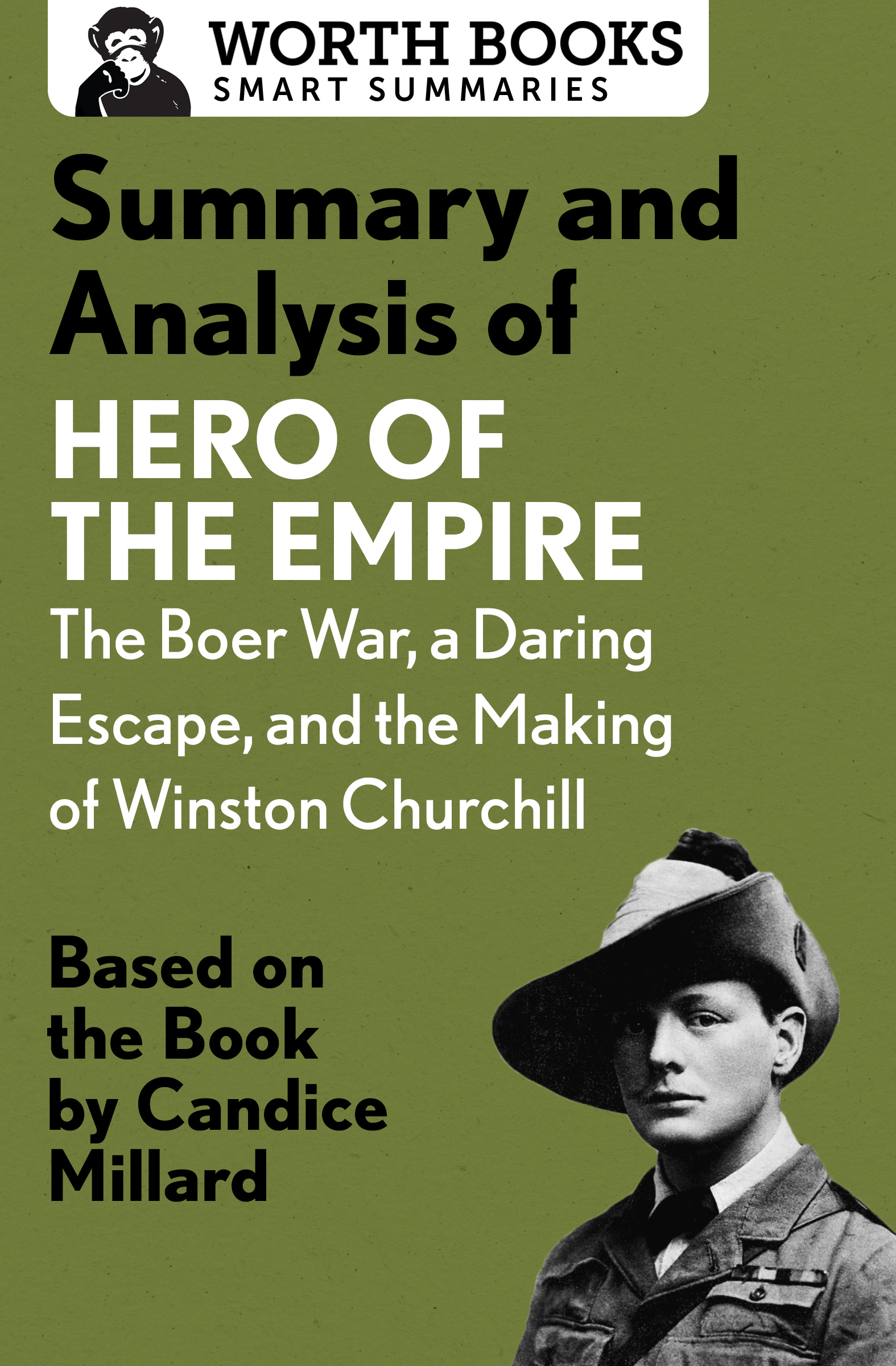Summary and Analysis of
Hero of the Empire
The Boer War, a Daring Escape, and the Making of Winston Churchill
Based on the Book by Candice Millard

Contents
Context
Though the events in Candice Millards Hero of the Empire occurred over a century ago, they have considerable relevance for society today. In many respects, it was a very different world that shaped Winston Churchill, but he, in turn, played an enormous part in the shaping of our modern life. As the publishers summary aptly states, the lessons Churchill took from the Boer War profoundly affect 20th-century history.
In 1899, the seminal year in the book, the British Empire covered one-fifth of the worlds land and ruled a quarter of its people. Britain was more or less the de facto leader of the West, if not the world, and saw itself as a beacon of enlightenment and civilization. Churchill became leader of that empire, and saw it through its brave fight against fascism, the beginning of the winding down of empire, and the passing of the mantle to the United States. His actions had great consequences for us, and his early experiences in South Africa helped give him the courage, daring, and confidence in destiny that made him the man he became.
Overview
Hero of the Empire by Candice Millard is about the adventurous days of Winston Churchills twenties. The story culminated in a daring escape that would catapult him to the heights of a legendary political career that shaped the 20th century.
Millard starts with background on Churchills famous aristocratic family, including his brilliant but troubled father, his mother the prominent beauty, the legacy of the Dukes of Marlborough, and the effect they had on shaping Churchill. She progresses to young Winstons early military adventures as an observer in Cuba, as an officer in the Sudan, and on the North-West Frontier Province of India. Millard brings forth Churchills (sometimes excessive) daring and bravery, and his firm belief in his own extraordinary destiny. With rich period detail, Millard then describes the events, environment, and characters leading to the Second Boer War in South Africa, the conflict that would finally give Churchill the glory and recognition he sought. We follow Churchill as he resigns from the army, becomes a highly paid correspondent, is captured during a heated battle, and becomes a prisoner of the Boers.
Millard takes us with Churchill as he chafes at captivity, executes each step of his escape, and is introduced to all those who helped him. We see a breathless British Empire wait for news of their dashing hero. Finally, Churchill receives the adulation he craves as he triumphantly rides to Parliament. We also follow the destinies of some of the other players in the Boer War, notably Louis Botha, the charismatic Boer leader and eventual friend of Churchill, and learn the full scope of consequences brought on by the war for the Republic of South Africa.
Summary
Prologue
Standing outside the prison fence hes just climbed over, Winston Churchill waits for his comrades-in-arms to join him. Though young, hes already a veteran of four wars, and his goal of achieving military glory stands firm. When his friends make clear they cant get out of the prison, however, Churchill faces a situation he never expected: Hes in an enemy land where he doesnt speak the language, alone, and is carrying no provisions. He doesnt even know which direction to run. None of this is to big a problem for Churchill. His extraordinary faith in himself is sure to see him through.
Part One: Pushful, the Younger
Chapter 1: Death by Inches
Winston Churchill was fascinated by war from his earliest days. He had an army of 1,500 toy soldiers, and enthusiastically fought and planned imaginary campaigns, hoping one day for the real thing, complete with a reputation for courage and daring. He attended Sandhurst, the Royal Military College, graduating in 1894, in a world where the British Empire covered a fifth of the globe and there was always combat in some part of it. Glory was to be won through medals, but modesty was considered a virtue. Churchill had no desire for the virtue, but he did want the medals. Through a combination of self-promotion and family connections, he saw his first action as a military observer in Cuba. His real education started the next year, on the North-West Frontier Province of India, fighting the ferocious Pashtun tribesmen. The fighting moved to the Hindu Kush mountains the next year, and Winston went with it. There was no room in the expedition for a regular officer, so he went as a combination officer and news correspondent. The unit he was with was attacked and surrounded, but Churchill stood his ground, shooting Pashtuns with a revolver until the relief column arrived. Many were killed, but Churchill was unscathed, and wasnt at all surprised, as he believed God had greater things for him in mind.
Chapter 2: The Graven Palm
The year 1898 was a big year for Churchill. He once again got himself to the forefront of colonial warfare, this time in the Sudan, ending up at the climactic Battle of Omdurman. He shot more than six men in this campaign, but more importantly, wrote a widely renowned book about it, The River War . He began to garner a reputation, and thought about following his fathers footsteps into politics. His father, Lord Randolph Churchill, was the third son of the seventh Duke of Marlborough. The family was spectacularly well connected, but didnt have much money left. Randolph married an American heiress named Jennie Jerome, who was herself impressive in the realms of looks and charisma, but unfortunately didnt have as much money as it might have appeared. Randolph had a degree of brilliance, though, and skyrocketed to Chancellor of the Exchequer at the tender age of 37. He then sabotaged himself, and died at the equally tender age of 45. Winston wasnt close to his father, but he idolized him and wanted to mirror his achievements, if not his mistakes. In debt and wanting to move ahead, Winston resigned his military commission and accepted an offer to run for Parliament.
Chapter 3: The Scion
Churchill gave his first political speechin his campaign for Parliamentin 1899. It was well received, and he loved doing it. Surprisingly, he was not a natural. He had a speech impediment, which he worked long hours to correct, the result of which was his distinctive way of speaking. He also wrote and practiced every element of his speeches carefully, though he delivered them in a calculated manner to feel off the cuff. In spite of his good press and the help of his beautiful, charismatic (and frequently scandalized) mother Jennie, Churchill lost the election to the Liberals. Having resigned from the army, Churchill had no profession to fall back on, but he still had great writing talent and great ambition.
Chapter 4: Blowing the Trumpet
Churchill grew up largely at Blenheim Palace, the magnificent estate granted to John Churchill, first Duke of Marlborough, for his victory at Blenheim in 1704. The estate belonged to Winstons cousin, the current Duke, but Winston was very conscious of the Churchill legacy, of his cousins place in Parliament, and of his own fathers early parliamentary start. He felt he was losing time. He was also conscious of growing trouble between the British and the Boers, the Dutch settlers in South Africa. The Dutch had been in South Africa for nearly 300 years, while the British didnt establish Cape Colony and other coastal enclaves until 1806. At first, the British and the Dutch left each other alone. But the British began moving inland, and, in 1833, they abolished slavery in the Cape. Dutch pioneers left and established the Orange Free State, Natal, and the Transvaal in the interior. The British annexed Natal in 1843; diamond mines were discovered in the Transvaal, and the British annexed that too. This prompted the First Boer War in 1880, which ended, to everyones surprise, with a British defeat at Majuba Hill. The British were entirely unwilling to let this result stand, setting the stage for further conflict. Churchill, like most Britons, believed in the might and right of the British Empire, and spoke in favor of war with the Boers. The Boers, for their part, issued an ultimatum to Britain to cease their annexations and encroachments. The British ignored it.


